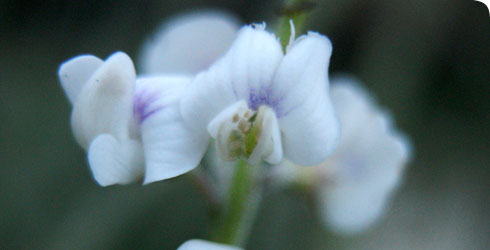Carmichaelia muritai
One of the world’s rarest plants, Carmichaelia muritai (syn. Chordospartium muritai) was first discovered in the early 1980s by Ron Feron, the Senior Noxious Plants officer for Marlborough County Council.
It is only known from a single unstable bluff on the remote coast of South Island, New Zealand, where fewer than 15 mature plants may survive.
Its specific name is taken from the Maori for 'sea breeze' alluding to its windswept coastal habitat.
It was introduced into cultivation in the British Isles shortly after its description in 1985 by Graham Hutchins, an Essex horticulturalist specialising in New Zealand plants.
This attractive and unusual slow-growing, leafless tree-broom is now safe from extinction through its cultivation ex situ.
Hybridisation with C. stevensonii, the most closely related species in the genus, has been possible in specialist collections in New Zealand and the UK, and might account for some of the variability now expressed.
Species detail
-

Taxonomy
Carmichaelia muritai is a graceful, leafless tree that grows to 6 metres tall. Find out exactly what it looks like.
-

Distribution
Discover the one place in the world where you might see this rare plant in the wild.
-

Biology
Carmichaelia muritai takes years to mature and produces flowers and seeds only sporadically. Find out more about this plant’s seemingly haphazard life history.
-

Conservation
When the plant was first identified in the 1980s there were 28 plants growing on an unstable cliff. By 1998 this number had fallen to 12. Discover what is being done to protect this rare species.
-

References
Get reference material for Carmichaelia muritai.
Images
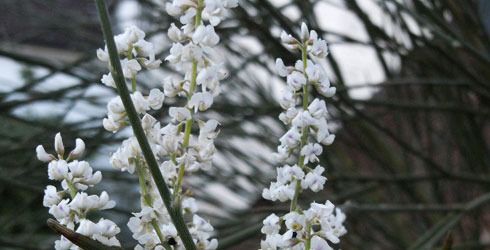
Flowers and inflorescences - the erect racemes distinguish this species from the closely related C. stevensonii.
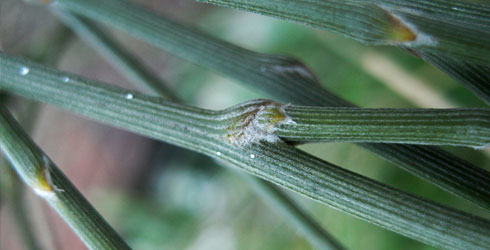
Carmichaelia muritai - branchlet showing stipule.
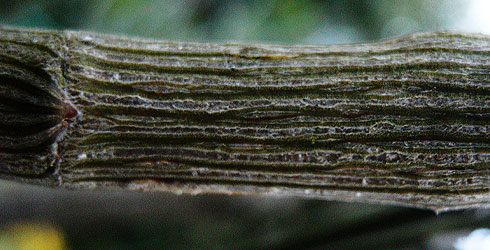
Carmichaelia muritai - ridged striate stem with conspicuous nodes.
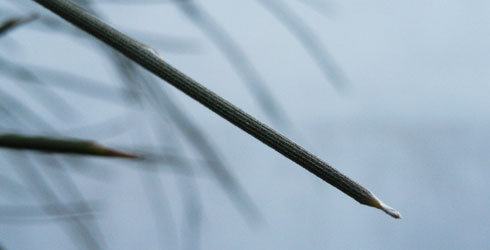
Carmichaelia muritai - branchlet tip, the leaves reduced to scale like structures.
About the author

Dr Fred Rumsey
Botanist - Identification and Advisory Service, Angela Marmont Centre for UK Biodiversity.
A word from the author
"Carmichaelia mutarai is a rare plant in cultivation as it is difficult and slow to propagate but is easily grown and hardy. It is a very worthwhile horticultural subject that deserves to be much better known. Its close relative C. stevensonii is perhaps a better garden plant - its weeping form and larger more colourful flowers recommending it."
Toolbox
Glossary
Xeromorphic
Adapted to dry conditions.
Racemes
A type of inflouresence that is unbranched and bears pedicellate flowers that have short floral stalks called pedicels along the axis.
